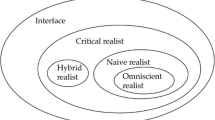Abstract
This paper analyzes a typical school spelling task in terms of an information processing model of spelling performance. It explores the nature of the speller's internal representation of the word to be spelled, the information he must have in memory about the target word, and the organization of the processes available to use that information to produce a spelling and verify its accuracy. Sources of error in the execution of the task, with examples of errors from children's spelling tests, are discussed in terms of the model. Ways in which the model may be adapted to explain performance on other kinds of spelling tasks and some implications for instruction are suggested. A partially implemented computer simulation of the spelling process is described.
Similar content being viewed by others
References
Cahen, L. S., Craun, M. J., and Johnson, S. K. (1971). “Spelling difficulty—A survey of the research,” Review of Educational Research, 41, 281–301.
Cole, R. A. and Scott, B. (1974). “Toward a theory of speech perception,” Psychological Review, 81, 348–374.
Erman, L. B. and Lesser, V. R. (1975). A multi-level organization for problem solving using many, diverse, cooperating sources of knowledge. Working paper, Department of Computer Science, Carnegie-Mellon University, Pittsburgh, Pa., March.
Glaser, R. (1973). “Educational psychology and education,” American Psychologist, 28(7), 557–566.
Hanna, P. R., Hanna, J. S., Hodges, R. E., and Rudorf, E. H.Jr. (1966). Phonemegrapheme correspondences as cues to spelling improvement. Washington, D.C.: U. S. Government Printing Office.
Hayes, J. R. and Simon, H. A. (1974). “Understanding written problem instructions,” in L. W., Gregg, Ed., Knowledge and cognition. Potomac, Md.: Lawrence Erlbaum Associates.
Hodges, R. E. (1972). “Theoretical frameworks of English orthography,” Elementary English, 49, 1089–1097.
Horn, T. D. (1969). “Spelling,” in R. L., Ebels, Ed. Encyclopedia of Educational Research (4th edition). New York: Macmillan.
Masters, H. V. (1927). A study of spelling errors. Iowa City: University of lowa Studies in Education, 4 (1st Series #138).
Newell, A., Barnett, J., Forgie, J. W., Green, C., Klatt, D., Licklider, J. C. R., Munson, J., Reddy, D. R., and Woods, W. A. (1973). Speech understanding systems: Final report of a study group. Amsterdam: North Holland/Elsevier.
Newell, A. and Simon, H. A. (1972). Human problem solving. Englewood Cliffs, N. J.: Prentice-Hall.
Personke, C. and Knight, L. (1971). “Proofreading and spelling: A report and a program,” In C., Personke and A. H., Yee, Eds., Comprehensive spelling Instruction. Scranton, Pa.: Intext.
Personke, C. and Yee, A. H. (1966). “A model for the analysis of spelling behavior,” Elementary English, 43, 278–284.
Petty, W. T. (1968). Issues and problems in the elementary language arts. Boston: Allyn and Bacon.
Resnick, L. B. (1975). “Task analysis in instructional design: Some cases from mathematics,” in D., Klahr, Ed., Cognition and instruction. Potomac, Md.: Lawrence Erlbaum Associates.
Resnick, L. B. and Beck, I. L. (1975). “Designing instruction in reading: Interaction of theory and practice,” In J. T., Guthrie, Ed., Aspects of Reading Acquisition. Baltimore: Johns Hopkins University Press.
Resnick, L. B., Wang, M. C., and Kaplan, J. (1973). “Task analysis in curriculum design: A hierarchically sequenced introductory mathematics curriculum,” Journal of Applied Behavior Analysis, 4(6), 679–710.
Simon, D. P. and Simon, H. A. (1973). “Alternative uses of phonemic information in spelling,” Review of Educational Research, 43. 115–136.
Author information
Authors and Affiliations
Additional information
The research reported herein was supported by the Learning Research and Development Center, University of Pittsburgh, supported in part as a research and development center by funds from the National Institute of Education (NIE), United States Department of Health, Education, and Welfare. The opinions expressed do not necessarily reflect the position or policy of NIE and no official endorsement should be inferred.
Rights and permissions
About this article
Cite this article
Simon, D.P. Spelling—A task analysis. Instr Sci 5, 277–302 (1976). https://doi.org/10.1007/BF00054359
Issue Date:
DOI: https://doi.org/10.1007/BF00054359




